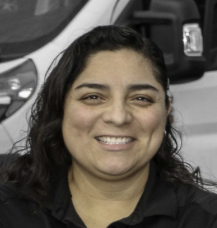Unseen Dangers: Why Suicide Cleanup Requires More Than Just Cleaning
When a tragedy like suicide occurs, the emotional toll is profound—and often paralyzing—for families, friends, and even property owners. In the midst of overwhelming grief and confusion, one pressing question emerges: Who handles the cleanup?
Many people assume this responsibility falls on the family, property manager, or emergency responders. But the reality is that suicide cleanup is far more than just scrubbing surfaces—it is a complex, sensitive, and hazardous process that demands professional expertise. At 360 Hazardous Cleanup, we understand the gravity of the situation and why these cleanups require specialized handling, not only for safety but also for the mental well-being of those affected.
The Hidden Hazards of Suicide Cleanup
Unlike everyday messes or household accidents, suicide scenes often involve biohazardous materials such as blood, bodily fluids, and tissue. These substances can contain pathogens like HIV, hepatitis B and C, MRSA, and other infectious agents. Without the proper protective equipment and decontamination procedures, exposure can pose serious health risks.
But the biological dangers are just one layer. There are also psychological and emotional hazards. Family members who attempt to clean a loved one’s remains are not only at risk of physical harm but also of retraumatization, which can complicate the grieving process and lead to long-term psychological issues such as PTSD, anxiety, or depression.
That’s why suicide cleanup is never just about cleaning. It’s about protecting people—physically, emotionally, and legally.
Why Professional Cleanup Matters
Here are several critical reasons why suicide cleanup should always be handled by trained biohazard professionals like the team at 360 Hazardous Cleanup:
1. Biohazard Remediation Requires Specialized Training
Suicide scenes can be unpredictable. Depending on the method and location, contaminants may seep into flooring, subflooring, walls, furniture, HVAC systems, and other porous materials. Simply cleaning visible areas is not enough; a thorough and professional decontamination process must occur to remove all traces of biohazards.
Our technicians undergo certified training in OSHA standards, bloodborne pathogen protocols, and biohazard remediation. We use EPA-approved disinfectants and follow strict procedures to ensure every affected area is not only cleaned but fully sanitized.
2. Proper Equipment is Essential
At 360 Hazardous Cleanup, we arrive equipped with full PPE (Personal Protective Equipment), commercial-grade disinfectants, ozone generators, air scrubbers, and other industrial tools that most households or cleaning companies simply don’t have.
Improper cleaning—or using household products like bleach or vinegar—can actually worsen the contamination or leave harmful residues behind.
3. Discretion and Compassion
Beyond the science, there is the human side. Suicide is a deeply personal and often stigmatized event. Our team is trained not just in cleanup, but in handling each situation with empathy, discretion, and care. We arrive in unmarked vehicles when requested and work quickly and quietly to restore the area with minimal disruption.
We understand we’re not just cleaning a scene—we’re helping a family begin the healing process.
4. Legal and Insurance Navigation
Did you know that most homeowner’s insurance policies cover the cost of biohazard cleanup after a suicide? Many families are unaware of this and either delay necessary remediation or attempt to do it themselves to save costs.
At 360 Hazardous Cleanup, we assist our clients in navigating insurance claims, working directly with providers to minimize out-of-pocket expenses. In some cases, we can even handle the claim submission for you.
We also ensure compliance with all local, state, and federal regulations for the transport and disposal of biohazardous waste—a critical but often overlooked component of safe cleanup.
The Emotional Impact: Protecting Loved Ones from Further Trauma
Families are already burdened with grief, funeral planning, and countless unanswered questions. Asking them to enter the scene of a loved one’s suicide and clean it up themselves is not only inhumane—it can be dangerous.
We’ve seen cases where families, in a state of shock, attempt to “just wipe things down” without realizing the depth of contamination or the long-term trauma they’re exposing themselves to. Blood and bodily fluids can penetrate deep into carpeting, wood, and drywall, leading to odors, decay, and even structural damage over time.
But more importantly, we’ve heard clients say, “I can’t unsee what I saw.” That’s what we aim to prevent.
When professionals step in, we take that burden off your shoulders. Our goal is to restore peace and dignity—not only to the physical space but also to the lives of those left behind.
Why 360 Hazardous Cleanup?
At 360 Hazardous Cleanup, we are more than a cleaning company. We are trauma specialists. Our team is available 24/7, 365 days a year, and we respond with the urgency and sensitivity that these situations demand.
Our services include:
-
Suicide and unattended death cleanup
-
Blood and bodily fluid cleanup
-
Crime scene remediation
-
Odor removal and sanitation
-
Structural disinfection and waste disposal
-
Insurance claim assistance
-
Post-remediation walkthroughs to ensure satisfaction
We don’t take shortcuts. We don’t treat you like a number. And we never forget the human impact behind every call.
Closing Thoughts
The aftermath of a suicide is a situation no one wants to face, but when it happens, families and property owners deserve more than a mop and bucket. They deserve professionals who understand both the science and the sorrow.
At 360 Hazardous Cleanup, we bring compassion, expertise, and discretion to every scene we handle. Suicide cleanup isn’t just about removing stains—it’s about restoring safety, dignity, and peace of mind to those who need it most.
If you or someone you know is facing the aftermath of a suicide, please don’t go through it alone. Contact 360 Hazardous Cleanup today. We’re here to help—any time, day or night.


